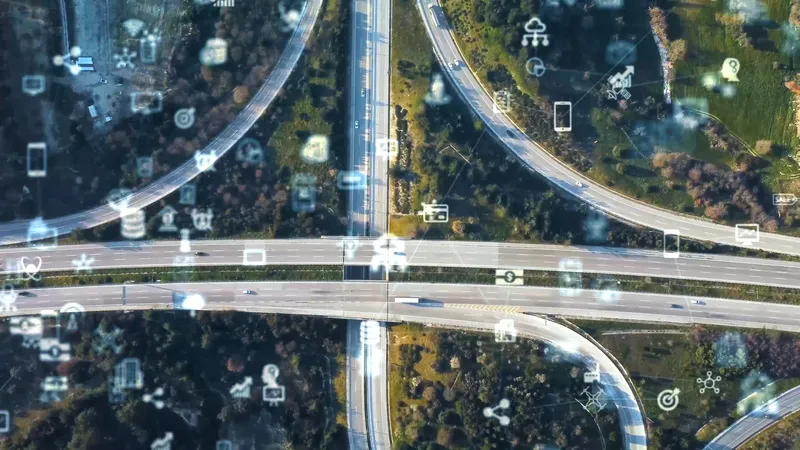UK automotive company Delphi Automotive will demonstrate the full capabilities of its active safety technologies with the longest automated drive ever attempted in North America. The coast-to-coast trip will launch near the Golden Gate Bridge in San Francisco on 22 March and will cover approximately 3,500 miles, finishing in New York. The journey will allow Delphi engineers to gather critical data and further advance the company’s active safety technology development in this rapidly growing segment of the a
March 17, 2015
Read time: 2 mins

UK automotive company Delphi Automotive will demonstrate the full capabilities of its active safety technologies with the longest automated drive ever attempted in North America. The coast-to-coast trip will launch near the Golden Gate Bridge in San Francisco on 22 March and will cover approximately 3,500 miles, finishing in New York.
The journey will allow Delphi engineers to gather critical data and further advance the company’s active safety technology development in this rapidly growing segment of the auto industry. During the cross-country trek, the vehicle will be challenged under a variety of driving conditions from changing weather and terrain to potential road hazards -- things that could never truly be tested in a lab.
Recently demonstrated on the streets of Las Vegas at CES 2015, Delphi’s automated driving vehicle leverages a full suite of technologies and features to make this trip possible, including radar, vision and advanced drive assistance systems (ADAS). A high-end microprocessor seamlessly drives multiple features and functions, while wireless vehicle communication technology extends the range of existing ADAS functionality. Intelligent software such as traffic jam assist, automated highway pilot with lane change (on-ramp to off-ramp highway pilot), automated urban pilot and automated parking and valet, enables the vehicle to make complex, human-like decisions for real-world automated driving.
“Delphi had great success testing its car in California and on the streets of Las Vegas,” said Jeff Owens, Delphi’s chief technology officer. “Now it’s time to put our vehicle to the ultimate test by broadening the range of driving conditions. This drive will help us collect invaluable data in our quest to deliver the best automotive grade technologies on the market.”
Delphi’s active safety technologies enable the vehicle to instantaneously make complex decisions, like stopping and then proceeding at a four-way stop, timing a highway merge or calculating the safest manoeuvre around a cyclist on a city street. Many of these driving scenarios have been a limitation for much of the current technology on the market today.
The journey will allow Delphi engineers to gather critical data and further advance the company’s active safety technology development in this rapidly growing segment of the auto industry. During the cross-country trek, the vehicle will be challenged under a variety of driving conditions from changing weather and terrain to potential road hazards -- things that could never truly be tested in a lab.
Recently demonstrated on the streets of Las Vegas at CES 2015, Delphi’s automated driving vehicle leverages a full suite of technologies and features to make this trip possible, including radar, vision and advanced drive assistance systems (ADAS). A high-end microprocessor seamlessly drives multiple features and functions, while wireless vehicle communication technology extends the range of existing ADAS functionality. Intelligent software such as traffic jam assist, automated highway pilot with lane change (on-ramp to off-ramp highway pilot), automated urban pilot and automated parking and valet, enables the vehicle to make complex, human-like decisions for real-world automated driving.
“Delphi had great success testing its car in California and on the streets of Las Vegas,” said Jeff Owens, Delphi’s chief technology officer. “Now it’s time to put our vehicle to the ultimate test by broadening the range of driving conditions. This drive will help us collect invaluable data in our quest to deliver the best automotive grade technologies on the market.”
Delphi’s active safety technologies enable the vehicle to instantaneously make complex decisions, like stopping and then proceeding at a four-way stop, timing a highway merge or calculating the safest manoeuvre around a cyclist on a city street. Many of these driving scenarios have been a limitation for much of the current technology on the market today.







